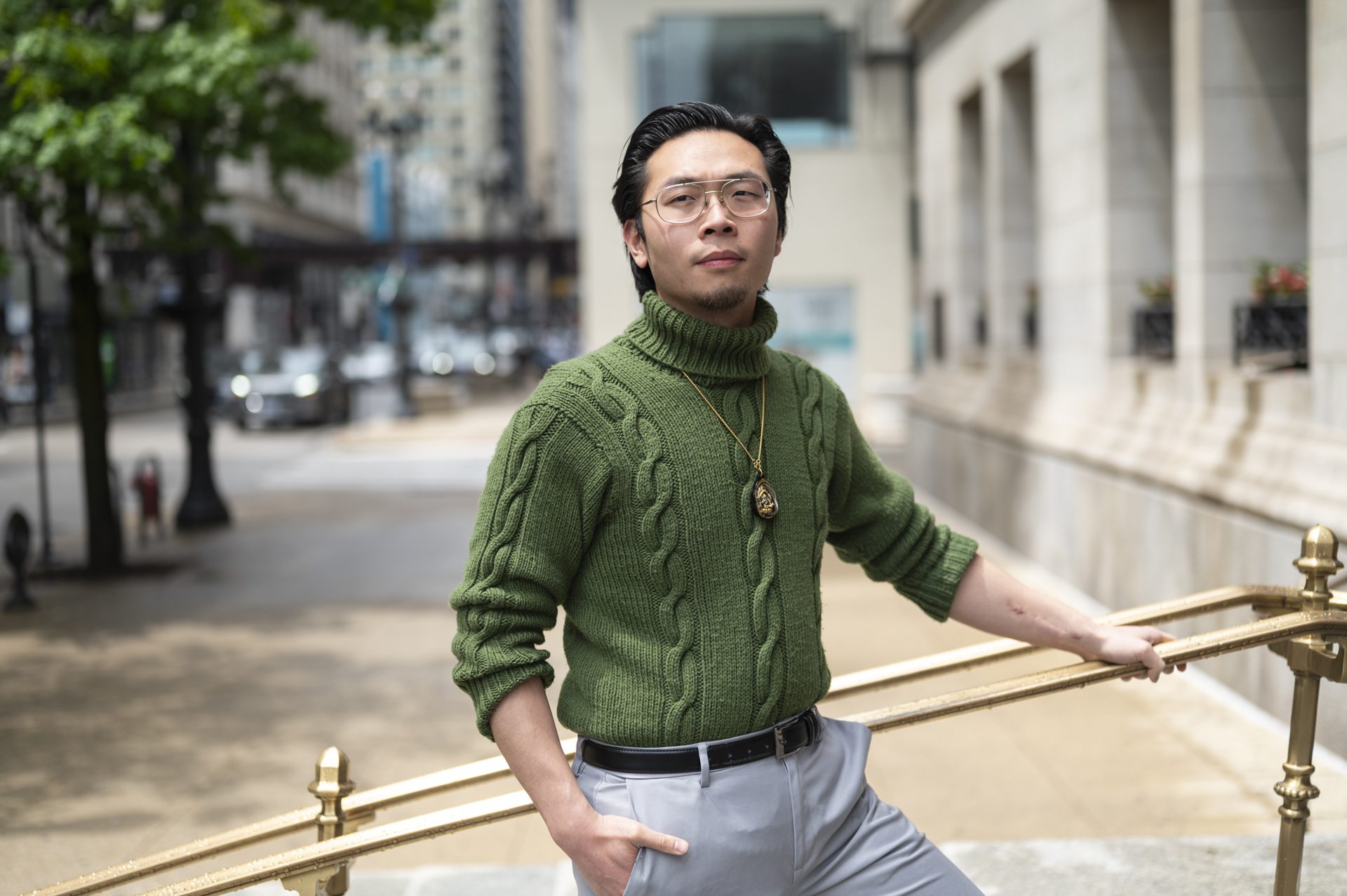 Max Herman/Borderless Magazine
Max Herman/Borderless MagazineAfter the passing of his father, Alan Phung discovered his roots through coffee.
Mai Coffee didn’t begin in a boardroom or a cafe. It started on a cold Chicago morning, with an orange can of Vietnamese coffee and a quiet moment between a father and son.
Years later, Alan Phung is part of a small, determined team trying to bring a new twist to Vietnamese coffee.
“We’ve bootstrapped everything — testing brews in dorm rooms, packing orders in garages, building community at farmers’ markets,” Phung said.
Phung and his team, Thomas Nguyen, Zekang Chen and Hong-Anh Nguyen launched a Kickstarter campaign this week to expand a small business idea rooted in culture.
News that puts power under the spotlight and communities at the center.
Sign up for our free newsletter and get updates twice a week.
“This isn’t just a business,” Phung said. “It’s a story of family, resilience and rediscovery.”
Borderless spoke with Phung about preserving his father’s memory and finding his roots through coffee.
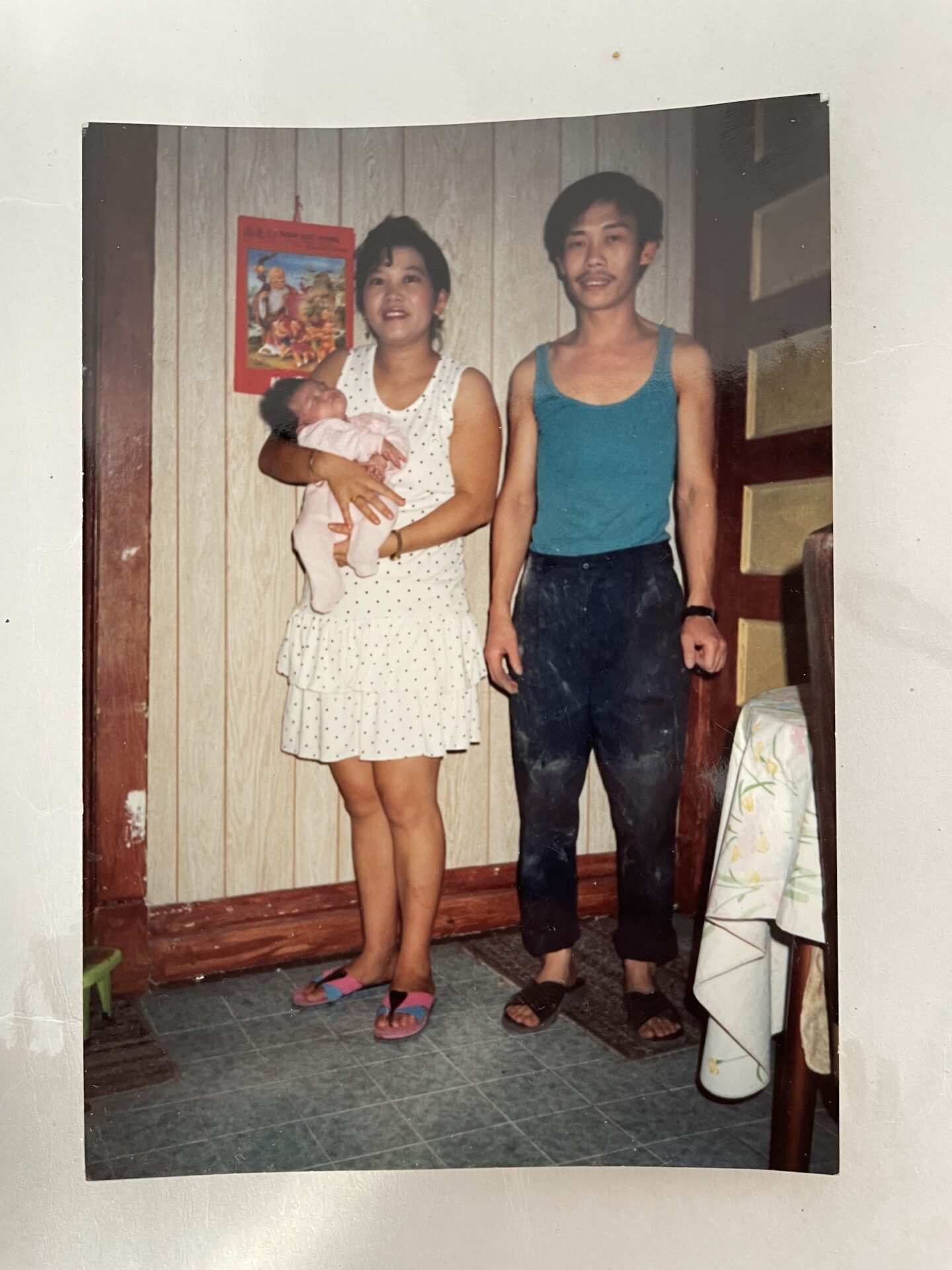
When I think about the origins of Mai Coffee, I think of a cold staircase in Chicago and an orange can of Vietnamese coffee.
On an early morning, when I was in third or fourth grade, my father, James, asked me: “Alan, have you ever tried Vietnamese coffee?” He pulled out that orange can, brewed a little, and gave me a spoonful. I’ll never forget my first encounter with Vietnamese coffee.
My dad came to America on a boat as a teenage refugee after the Vietnam War. He came alone at 14, and was trying to finish high school. He worked nights at a pizza shop and had nowhere to sleep, so he tucked himself under a staircase in the freezing cold near Argyle. That was his life. School by day, work by night, and survival in between. Eventually, he found a path forward through trade school. He learned welding and car painting there — skills he would later use at his jobs.
After my dad passed away from cancer in December 2017, I rediscovered that orange coffee can. It became more than just a drink — a memory, a link to my roots and a business idea.
In my senior year of high school, I first tasted a 100% robusta brew, the Vietnamese coffee my dad used to make. Its bold, dark, chocolaty flavor mixed with caramel-sweet condensed milk was unforgettable. That flavor became the heartbeat of Mai Coffee.
I was already interested in startups and entrepreneurship in high school, but that small spoonful of coffee turned into a passion project in college. I began researching what makes Vietnamese coffee so distinct, particularly its use of robusta beans. Robusta is more chocolatey, woody, and earthy.
Over the last few years, I talked to cafe owners in Vietnam and researched how they roast their beans, what varieties they use, and how they brew them. It took me two years to research coffee cupping, experiment with roasts and compare sourcing methods.
I remember having a small tray of coffee samples every Saturday morning during college. I used to go around all the dorm rooms, introduce myself, and ask students if they wanted to try some samples. I became known as the “coffee guy” at Denison University. By junior year, we began selling small coffee packages at universities and farmers’ markets.
After graduating in 2022, I returned to Vietnam for three months. I visited farms, met the farmers, and saw firsthand the people whose hard work powers the Vietnamese coffee community. It was profoundly grounding.
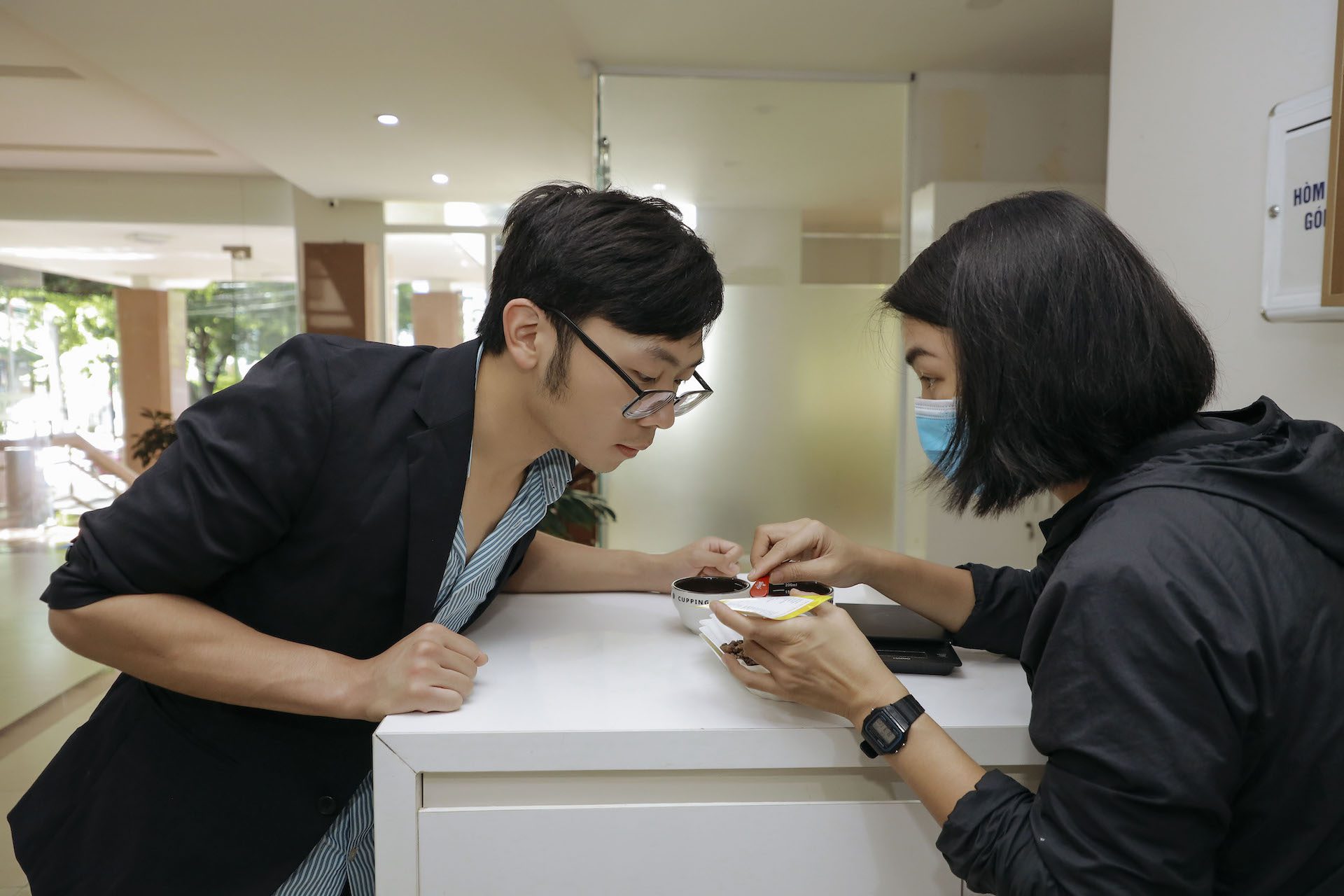
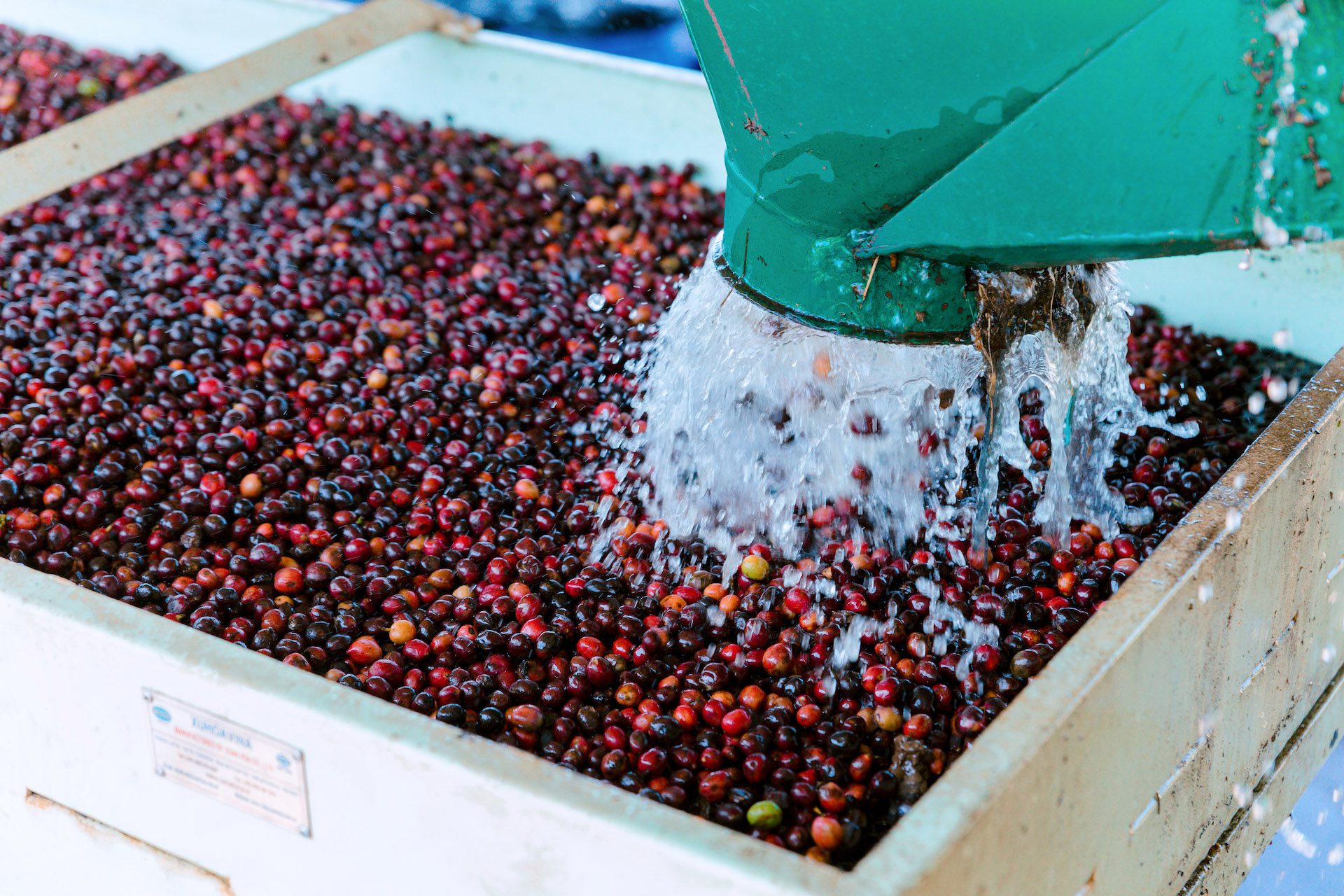
Now, we are launching Vietnamese coffee in tea bags to support better farm practices in Vietnam. We named our new business Mai Coffee.
In Vietnamese, “Mai” means early morning when the light breaks and the day begins. We want every cup to feel like a fresh start, a moment of connection — whether it’s to family, heritage, or simply a new flavor you’ve never tried.
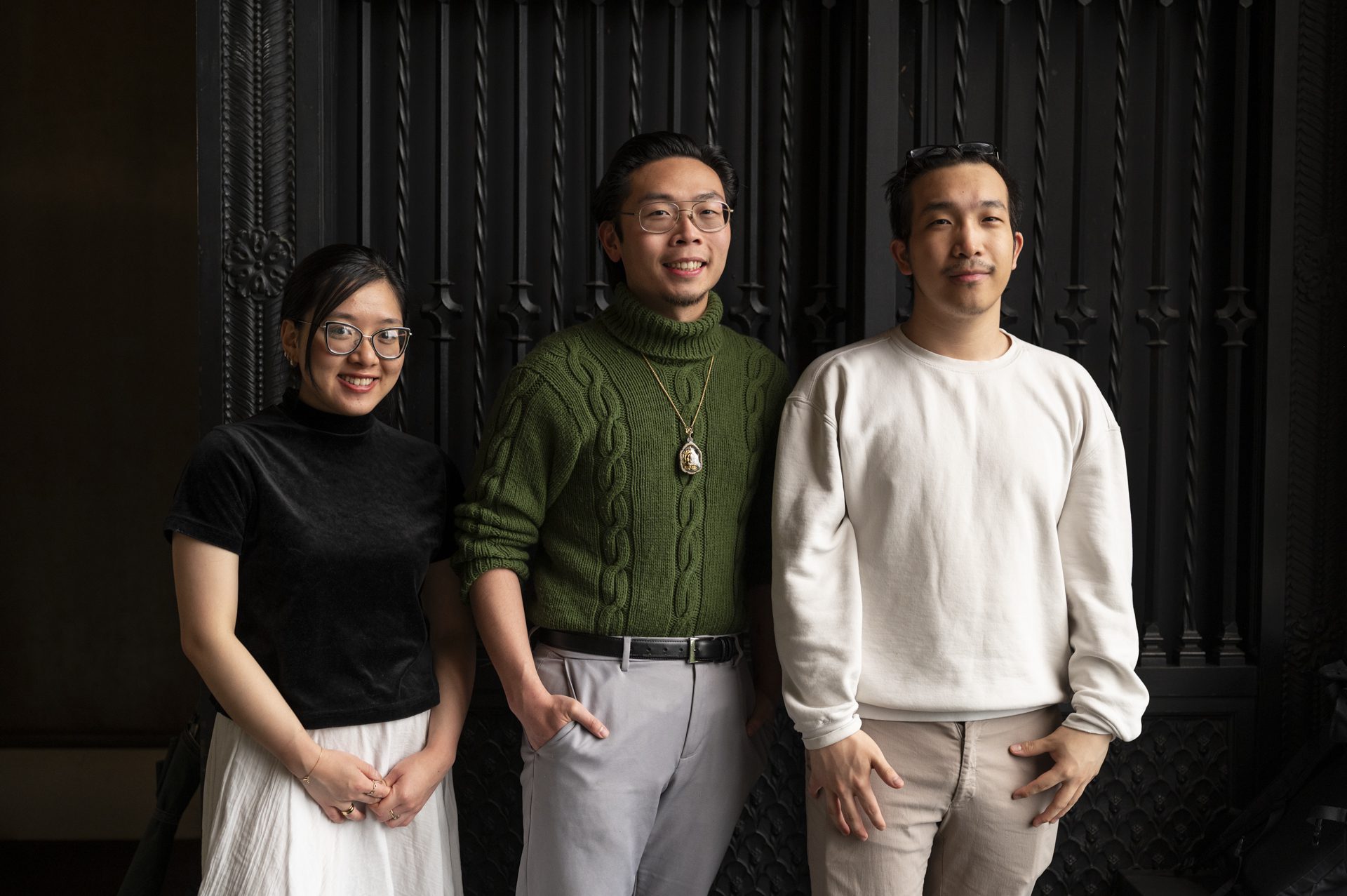
As I continue to learn about coffee, I realize it’s more than coffee — it’s about communities, connections and the love of people who make it. It’s that human side behind it. You might be able to speak a different language, but your taste buds will be the same. When this transcends that language barrier — this taste of Vietnamese coffee — that makes coffee an amazing drink, precisely what we’re trying to get to people.
A Vietnamese international student took a sip and said, “This tastes like being back home.”
The future of coffee is changing. Climate change is making arabica harder to grow, and the world is starting to look at robusta with new eyes since robusta is a very hardy bean — it doesn’t die very easily. But we’ve been here — doing the work, tasting the beans, telling the story.
Our mission is simple: introduce the world to the soul of Vietnamese coffee and make sure the people behind it are seen, supported, and celebrated.
This story was produced using Borderless Magazine’s collaborative as-told-to method. To learn how we make stories like these, check out our as-told-to visual explainer.
Fatema Hosseini is a Roy W. Howard Investigative Reporting fellow covering immigrant communities for Borderless Magazine. Send her an email at [email protected].

